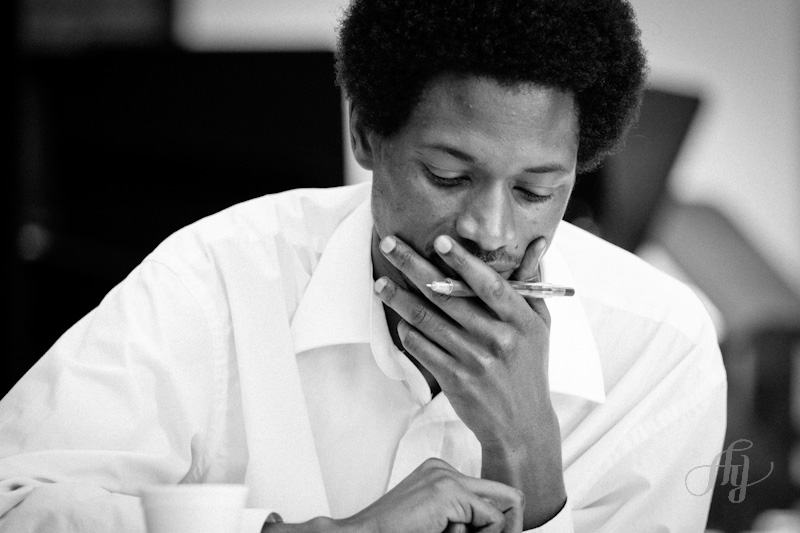
By Elaine Smith
Assistant Professor Moussa Djigo believes that if he is going to teach production, he should understand the DNA of filmmaking.
Although Djigo has a scholarly book in the works, this assistant professor of film production in the School of Arts, Media, Performance & Design is focusing most of his creative energies on making his own films.
“My research is doing what I teach,” he says.
Djigo has written, directed and produced two feature-length fiction films to date: Obamas (2015) and Rosalie (2018). They have won 20 awards on the film festival circuit between them, screened at venues worldwide and aired on TFO (a Canadian French language educational television channel).

“I usually take about three years to complete a feature film from the time we begin shooting,” he notes.
Obamas, written shortly after Djigo moved to Montreal from France, is his response to a debate taking place about Quebec cinema at the time about whether films actually reflected life in Montreal. He addressed the primacy of race in judging people by creating two main characters who are each played by three actors of different backgrounds and ethnic groups.
“It’s a philosophical take on identity,” says Djigo. “It shows how people stick to rigid ideas that aren’t so true; we tend to just repeat what we have been told about ourselves without questioning the validity of it.
"People [in the film] may be judged based on how they appear on the outside, even though their character is the same. It could be anyone meeting anyone. Faces don’t tell anything about territory any more. We are a country made predominantly of immigrants and the idea about where you are from becomes more and more complicated."
Rosalie takes a poke at the romantic comedy genre by doing an autopsy of a failed relationship instead of promising a successful one.
“Usually, in a romantic comedy, the woman gets a man, has kids and lives happily ever after,” Djigo says. “You create something that doesn’t exist in real life to make people dream. In Rosalie, the dream is a thing of the past while the present is a nightmare.
“In an era where personal freedom is conquered, many seem not to be happy in their love life; freedom doesn’t seem to solve things for us. Maybe love has a lifespan if you disregard the old rules. How depressing.”
Djigo has a third film in the works, one that he hopes to have ready in the spring for the upcoming festival season. It’s his most personal film yet, a meditation on fatherhood that is a tribute to his own father who passed away last year. Djigo and friend and colleague York AMPD Assistant Professor of film, Manfred Becker, who acted as his cinematographer, made a trip this summer to the village in Senegal where he grew up and shot the film on site.
“It’s about every father who wants to be there for his children,” Djigo says. “I wanted to take my art back to the village where I grew up, and it was very nice to involve people there.”
The film features a couple of actors with theatre experience, but most of the participants are non-professional locals (farmers, fishermen or shepherds), including his mother.
“I think I’ll do that again,” Djigo says. “Untrained actors don’t overthink their performances; they have nothing at stake. They are just there to have fun.
“The sky is the limit if you create trust with your cast and, as director, establish a family-like relationship. It’s the vibe I try to create. I tell them: ‘Go ahead and look extremely silly if you want’; it takes away the pressure. If they’re not thinking about you judging them and they know they’re allowed to fail, then they succeed.
“It will probably be my best film yet. But that’s what I say after every shoot.”
